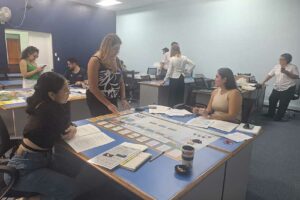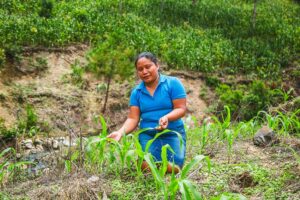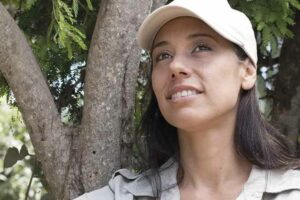The Water Harvest project has benefited more than 3,500 families in Nicaragua's dry corridor
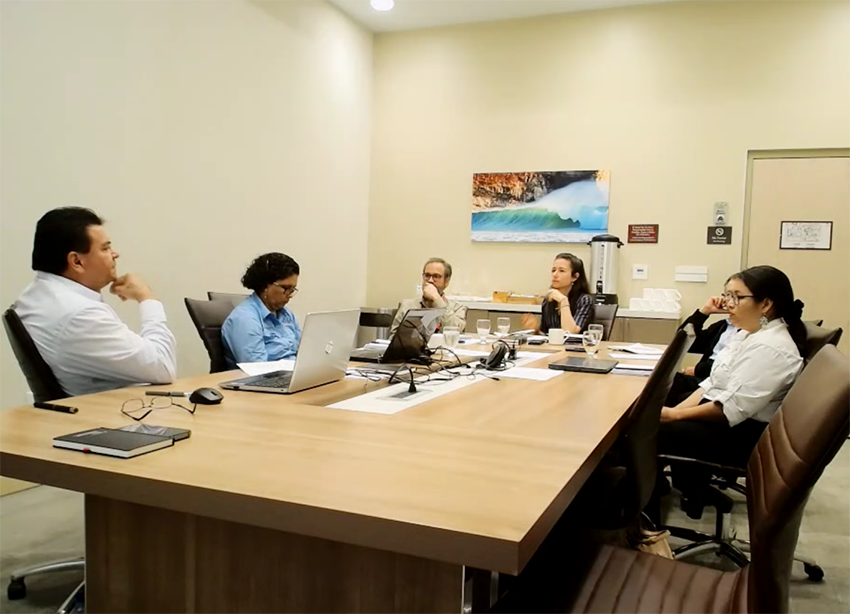
- In its 10 years of existence, the achievements obtained for the benefit of the Nicaraguan population have made it possible for the project authorities to confirm the continuity of the project and thus initiate an escalation phase in other areas of the country.
February 27, 2023. The steering committee of the Water Harvest project met last Friday, February 24, to discuss the achievements of the Las Segovias dry corridor in Nicaragua, as well as the emphasis for the extension of the project for the period November 2022 - April 2024 and the proposal of an operational plan to be executed.
The Water Harvesting project supports the construction of infrastructure to capture rainwater through artificial ponds, springs and roofs, which is then used for productive purposes. The initiative is implemented by CATIE ( Tropical Agricultural Research and Higher Education Center), in collaboration with the Nicaraguan Institute of Agricultural Technology (INTA, its Spanish acronym) and financed by the Swiss Cooperation in Central America (COSUDE), in 10 Nicaraguan municipalities: Ciudad Antigua and Mozonte (Nueva Segovia); Somoto, Totogalpa, Telpaneca, Palacagüina, Yalagüina and San Lucas (Madriz); Pueblo Nuevo and Condega (Estelí) .
"This 2023 we celebrate 10 years of joint work with the Swiss Cooperation and the Nicaraguan public sector institutions, in promoting technological options for farming families in the dry zone to improve their resilience capabilities and consequently better cope with climate variability, through the establishment of more resilient production systems, which ultimately affect a significant improvement in their food and nutritional security," said Muhammad Ibrahim, director general of CATIE.
The second phase of the project has improved the living conditions of approximately 2,500 families, tripled the number of irrigation systems in the region and expanded the cultivated areas, improving productivity and thus family income.
"The work carried out in more than 6,000 hectares of water harvesting recharge zones is an important contribution to the conservation of sites that are gradually becoming islands of biodiversity. In other words, the project is also contributing to ecological restoration and better management of recharge zones. In addition, we are helping to break the cycle of capitalization and decapitalization that livestock producers face year after year, since they do not have to sell their cattle at the peak of the dry season. Today their farms are worth more because they now have water," said Bayardo Quintero, coordinator of the Water Harvest project.
The project's operational plan for the next 14 months includes the development of broad capacity-building efforts, especially in the public sector; the improvement of management instruments for livestock associations to incorporate water harvesting as an effective measure for adapting to climate variability; the promotion of a credit product to massify water harvesting; and the development of a knowledge management platform to make the information generated available to society in general.
"What awaits us in the coming months in terms of our work agenda is complex and challenging, but the satisfaction of promoting change should drive us to do our best, and that is what we are doing with the support of the public sector and local partners," said Ibrahim.
Camille Flückiger, Deputy Head of Cooperation and Head of Humanitarian Aid, acknowledged CATIE's work on the project and its impact on families, who are more resilient to climate variability, responding satisfactorily to the fulfillment of SDC's objectives, despite a complex climate and pandemic context.
The steering committee meeting was attended by Camile Flückiger; Miguel Obando, co-director of INTA; Mauricio Peñalba, SDC program officer; Muhammad Ibrahim; Laura Benegas, coordinator of CATIE's Watershed, Water and Soil Security Unit; and Regina López, CATIE representative in Nicaragua.
"I would like to thank once again the Swiss Cooperation for the trust placed in CATIE, and the Nicaraguan Institute of Agricultural Technology for its support and assistance in the field," concluded Ibrahim.
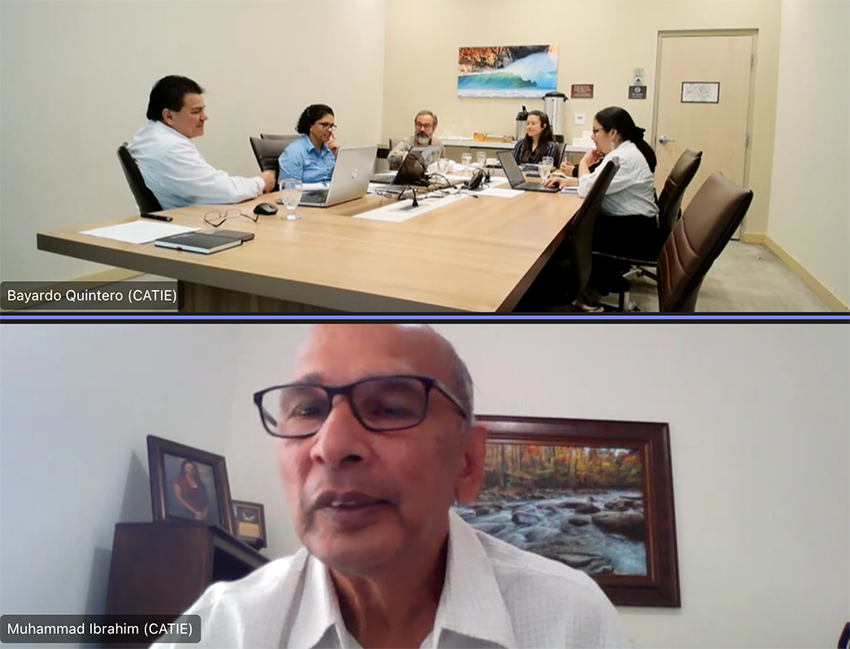
More information:
Bayardo Quintero
Coordinator
Water Harvesting Project
Written by:
Dannia Gamboa Solís
Communicator
CATIE Communication and Marketing Office
dannia.gamboa@catie.ac.cr

